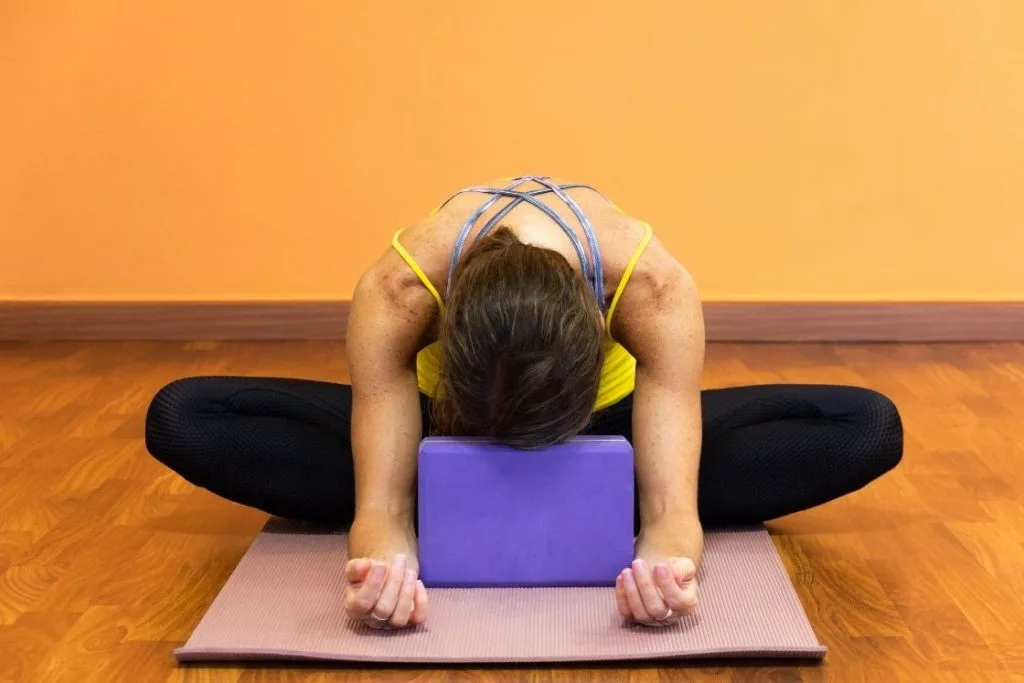How to Tame a Worrying Mind During Difficult Times
“Mental health is just as important as physical health.” ~Unknown
Our main focus during this challenging time is quite rightly on our physical well-being. But we shouldn’t forget about our mental health considering these are stressful times for all of us.
Will we get sick?
Will our loved ones die?
Will we have enough food to feed the family?
How will we pay the bills?
How long do we have to stay in?
Will things ever get back to normal?
So many questions, so many worries.
Worrying used to keep me awake at night. It occupied every space of my mind during every waking minute. I always felt on the edge of a nervous breakdown. I didn’t feel like I could handle life at all.
My life was like this for many years until I began to understand myself better. I healed my past traumas and learned to respond to myself in effective and compassionate ways.
Some of what I’ve learned has helped a great deal during this time of uncertainty and unpredictability. This has resulted in me experiencing great mental health with well-balanced moods, resilience in the face of challenge, and solid emotional regulation skills.
And let me tell you, I was pretty much the opposite extreme before, so these mental health secrets really do work. I want to share them with you so you too can benefit, because emotional well-being can help see us through the challenges that lie ahead.
Mental Health Booster #1: Be Present
When I used to worry and cripple myself with anxiety, I was caught up in my head. I followed every thought like a puppy chases a squirrel. It was too tempting, and I couldn’t resist it. One fearful thought led to another, and down the slippery slope of worry I went. I never landed anywhere pleasant.
Being caught up in my mind meant that I wasn’t present enough to pay attention to myself, so I didn’t know how I felt or what I wanted. I was just stressed out of my mind while staying stagnant in my life.
Being caught up in your head right now probably looks like worrying about your health or someone else’s, watching the news and feeding your mind with more and more scary updates. Maybe you can feel that you’re spiraling and your anxiety is increasing. Maybe you’re obsessively following the media coverage and forgetting about everything else.
These are examples of not being present.
Being present means being fully in the moment. It’s not being distracted but engaging with what is.
So instead of filling my mind with worrisome news, I tend to what is going on right in front of me. I may play with my baby, cook for my children, or take a warm bath. In this way, I am there both physically and emotionally, which helps me to stay out of my head.
During challenging times, I pay particular attention to any distress signals like shallow breathing, feeling shaky, or having a tight chest. I no longer see them as something additional to worry me but rather as signs that alert me to take a break.
I pause and get still. I start to be there for myself.
I reconnect with what is going on around me. I ground myself in my body. I focus on my breath.
I slow down. I get present.
Then the anxious voices in my heads, my little worry warts, begin to fade away.
Mental Health Booster #2: Feel and Validate Your Feelings
We all experience an increase in uncomfortable feelings during challenging times. If we have to stay at home, there are fewer distractions to take our mind off fearful thoughts and difficult emotions.
We can easily find ourselves overwhelmed by our feelings.
I remember many times in my life when it felt like the walls were closing in on me while something horrifically painful inside me was trying to break out. I felt hot and panicked. I didn’t know what to do and worried that I was losing my mind.
I had been avoiding and fighting my feelings for so long that I didn’t understand them. I feared them. I used all my energy and effort to suppress them, but every now and then, during challenging times, I couldn’t keep it up
The additional stress was simply too much.
One day I read that we were meant to feel our feelings. Wait, WHAT!?
Mind. Blown.
I had been fighting my feelings and running away from them all my life, and now I was being told that if I ever wanted to get better, I had to feel my feelings.
So I started letting them happen. It wasn’t comfortable and it wasn’t easy, but it was worth it because I realized resisting my feelings was what actually made it all so painful.
I learned that I had to stop telling myself that I shouldn’t feel how I was feeling, that I was being ridiculous, that I was too sensitive, and so on. I was invalidating myself. I was shaming myself for feeling whatever I was feeling.
I was making myself wrong for feeling all the time. No wonder I felt overwhelmed when experiencing something I had judged as shameful!
Invalidating our feelings is harmful to our mental well-being. It erodes our self-esteem and leaves us feeling broken and defective. It makes us disconnect from ourselves, and we begin to make all the wrong choices because we no longer know how we feel and what we want.
Staying mentally healthy during difficult times requires you feel your feelings and allow yourself to process them, which means not fighting or avoiding them.
It also means that you have to learn to validate your feelings. This involves you normalizing and empathizing.
You do this by telling yourself that it’s okay to have this feeling, and that any human with the kinds of thoughts you’re thinking or the kind of experience you are having would feel how you’re feeling. Tell yourself that it’s okay. That in itself is reassuring.
For example, most recently I have been experiencing fearful thoughts about the health of my loved ones. I worry that they’ll get sick, or worse. Instead of fighting my worry, I validate my fears and soothe myself.
I can see that it’s perfectly natural to worry about losing those you love and that the anxiety I experience is a result of these kinds of thoughts. My anxiety is therefore perfectly normal considering the circumstances, and I don’t have to see it as a problem, which in itself is reassuring and decreases my anxiety.
Mental Health Booster #3: Engage with Something Meaningful
When we learn not to make our feelings problems, it creates the space we need to engage with something meaningful, something that matters to us, something that brings us joy.
And what is really important for our mental well-being during difficult times is to engage in something meaningful for us.
We can choose something fun, something silly, something creative, something lighthearted. We can come up with new projects or can focus on being productive in some way. We can improve our relationships by having some fun or being caring toward each other. We can play with our kids.
Whatever it is, choose something. Get present and engage with it.
It will take your mind off things. It will give you a break.
Don’t let a difficult situation confine and restrict you.
This isn’t about denying or avoiding the realities of a difficult situation. It’s about preserving the mental energy needed to deal with it in the most effective and compassionate way possible.
And a big part of preserving our mental energy and health is maintaining a sense of purpose in the face of a crisis.
This is something most of us have in common: We all want to feel that we are useful in some way, that we have a purpose, that we’re doing something valuable.
And there are so many different things we can do to have that experience. But in order to do so, we need to have space in our minds, which requires us to practice being present, to feel our feelings and to validate them.
—
I hope that these three mental health boosters help you as much as they have helped me. I am grateful to you for reading this, as this is my meaningful contribution that allows my mind to focus on something I find valuable and enjoyable.
About Marlena Tillhon
Marlena helps people who struggle in relationships, due to codependency, insecure attachment, and unresolved trauma, develop and change in ways that allow them to finally get the love they need. She works as a psychotherapist, relationship coach, and clinical director and loves to connect on Instagram or via her Love with Clarity Facebook group and page. She is an expert in human relationships and sees them as the lifeblood of a meaningful existence.






